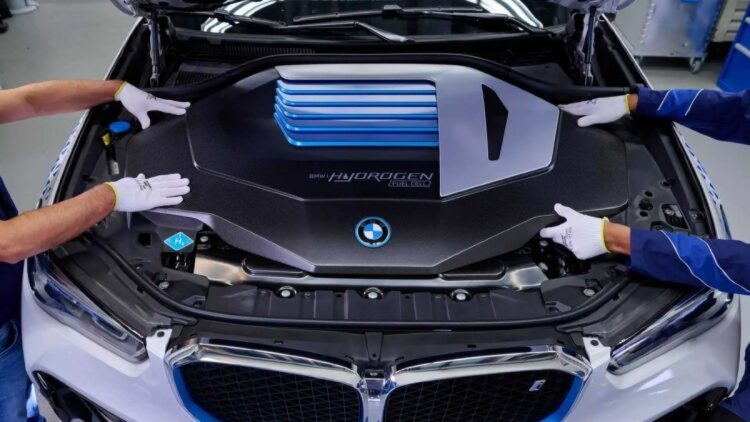BMW has long been at the forefront of automotive innovation, and their latest venture into hydrogen-powered vehicles is no exception. As the automotive industry continues to shift toward more sustainable and environmentally friendly alternatives, BMW is exploring hydrogen as a potential solution to reduce carbon emissions and improve energy efficiency. With the launch of their hydrogen-powered model, the company aims to not only push the boundaries of vehicle technology but also contribute to the growing conversation about clean energy and the future of transportation.
Hydrogen continues to gain popularity amidst electric craze
While electric vehicles have dominated the conversation around sustainable transportation, hydrogen-powered vehicles are still holding their ground, offering unique benefits that could play a key role in the future of mobility. Hydrogen vehicles use fuel cells to convert hydrogen gas into electricity, producing only water vapor as a byproduct, making them a clean and environmentally friendly alternative to traditional gas-powered cars.
One of the primary advantages of hydrogen vehicles is their fast refueling time. Unlike electrical vehicles, which can take several hours to charge, hydrogen vehicles can refuel in just a few minutes, offering a level of convenience that makes them more comparable to internal combustion engine vehicles. Additionally, hydrogen fuel cells offer longer driving ranges than many electric vehicles, which is particularly advantageous for long-distance travel and heavy-duty transportation.
Hydrogen also presents a significant advantage in sectors like trucking and public transportation, where longer range and quicker refueling are essential. As hydrogen infrastructure continues to grow, with more refueling stations becoming available, the potential for hydrogen vehicles to complement the electric vehicle market increases. Despite the dominance of electric engines, hydrogen-powered cars continue to prove their worth, particularly for applications where electrical vehicles may struggle to meet the demands of speed, range, and convenience.
BMW continues to drive innovation
BMW plans to release its first-ever fuel cell electric vehicle in 2028, offering customers a new all-electric option with zero local emissions. To achieve this, BMW is teaming up with Toyota, combining their technological expertise to develop a new generation of fuel cell powertrain technology. Both companies are committed to advancing the hydrogen economy and working together to take this clean, zero-emission technology to the next level.
BMW and Toyota will work together to develop the powertrain system for passenger vehicles, using core fuel cell technology that benefits both commercial and passenger cars. This partnership will result in fuel-cell electric vehicles for both brands, offering customers more options and bringing hydrogen mobility closer to reality. While the technology is shared, each brand will keep its unique identity and characteristics in their fuel-cell electric models. By collaborating on development and procurement, both companies aim to reduce the cost of fuel cell technology, making it more affordable for customers.
Hydrogen continues to grow in popularity
Hydrogen is continuing to gain traction as a popular alternative vehicle as more brands expand their alternative engine solutions. As the world shifts toward sustainability, hydrogen-powered vehicles offer a promising alternative to traditional combustion engines, with their zero emissions and faster refueling times compared to electric vehicles.
Automakers are increasingly investing in hydrogen technology, diversifying their solutions to cater to different consumer needs. As infrastructure improves and technology advances, hydrogen is becoming an essential part of the future of clean transportation.

